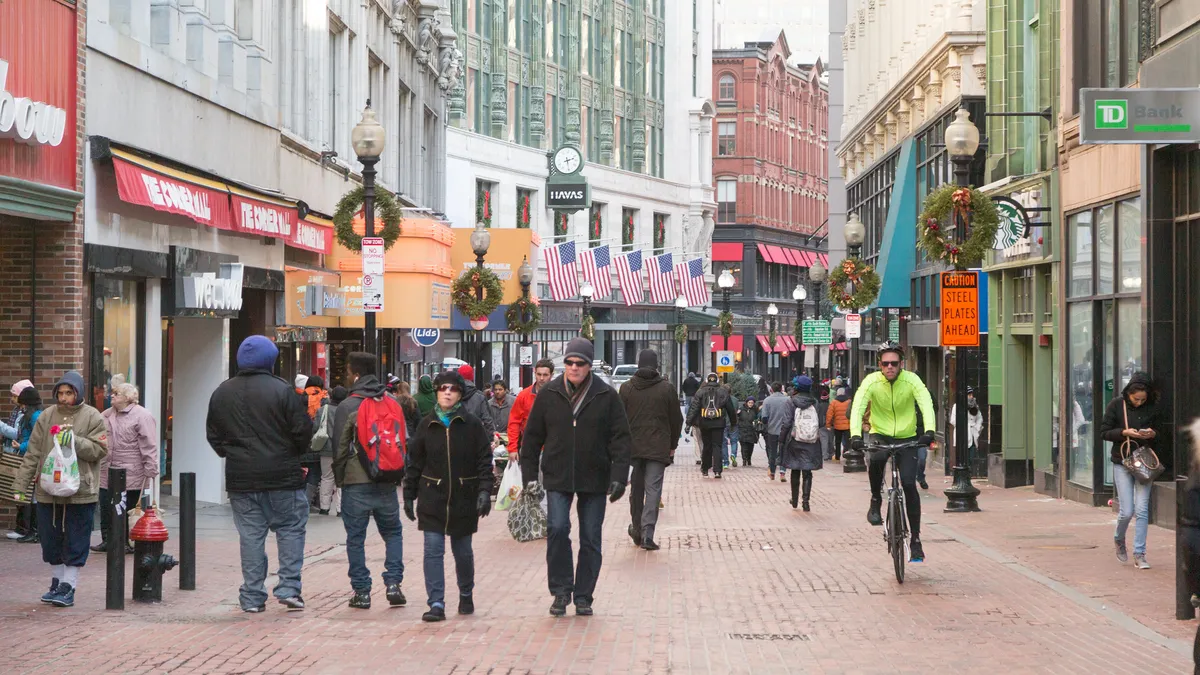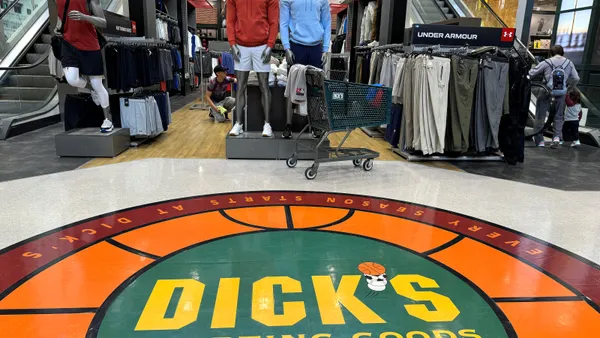Dive Brief:
-
The National Retail Federation on Tuesday said it expects retail sales in November and December to rise between 2.5% and 3.5% year over year, reaching $979.5 billion to $989 billion. Historically those months have driven 19% of retail sales for the year.
-
E-commerce in the holiday period is estimated to grow 8% to 9% to between $295.1 billion and $297.9 billion, less than last year’s 10.7% increase, according to the group’s press release. The report excludes spending on autos, restaurants and fuel.
-
Holiday hiring is down slightly, with NRF expecting retailers to hire 400,000 to 500,000 seasonal workers, down from 509,000 last year.
Dive Insight:
There are a few factors unique to this year’s holidays, including fallout from devastating storms in the Southeast affecting consumers and stores, a shortened season and the presidential election. But, despite that and the cautious attitude consumers have adopted in the past four years, retailers this year are set to benefit from an economy that has been expanding since the worst of the pandemic, NRF CEO Matthew Shay told reporters on a call Tuesday.
“This year will be a record level of spending,” he said. “The economy has been in a good place this year, operating with solid footing, and the consumer economy and the retail industry certainly continue to benefit from that strength. We know going into the holiday season that consumers continue to show resilience, and they show strength in their spending.”
That has been “underpinned by a healthy jobs market and wage growth that has generally been outpacing inflation,” he also said, noting that inflation has eased and retail sales have posted year-on-year growth for 52 straight months.
While credit card debt and delinquencies have been a concern, those, too, have eased somewhat, according to Shay.
The NRF acknowledged that, especially in a year with a short season — there are just 26 days between Black Friday and Christmas Eve, Shay said — there is a push to start holiday marketing early and that some shopping has begun outside of the group’s November to December calculations. But the short timeframe does have implications because so many people reserve their holiday shopping and celebrating for Thanksgiving and beyond.
“We've all talked a lot about how maybe Black Friday has lost some of the impact that it has on the official beginning of the shopping season. We know consumers begin their shopping earlier. We know retailers are meeting those expectations, delivering values and promotions and deals earlier than ever,” he said, noting that the shorter season and fewer days between Black Friday and Christmas “may be slightly less important. Nevertheless, as a psychological measure, there are still many of us who make our shopping and spending and holiday financial commitment decisions based on the things happening during that period.”
Given consumer expectations around speedy delivery and fulfillment, that puts extra pressure on retailers this year, he said.














